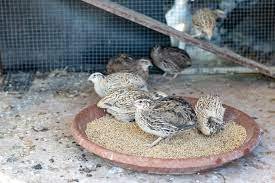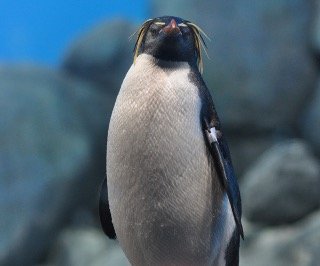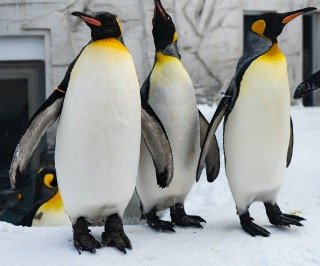Quails are fascinating birds that are also incredibly hardy and productive. There are a wide variety of quail breeds that can be found in different parts of the world. If you intend to keep quails as pets, produce meat or eggs from them, or raise them for any other purpose, you will need to familiarise yourself with their social dynamics and provide them with the care that is required. Quail are classified as omnivores, which indicates that they will consume both plant- and animal-based foods in their diets. Examples of the former include seeds and leafy, green foliage, while examples of the latter include insects.

In some regions, quails and the eggs they lay are considered to be delectable foods; nevertheless, other individuals maintain these birds only due to the fact that they are irresistibly adorable. In either case, the provision of a suitable diet is vital to the maintenance of healthy quails. In the wild, quails may have a diet that is less diversified than the diet of quails kept as pets or as livestock, which may result in varying degrees of health and a change in the flavor of the meat and eggs.
More about Quails

The majority of quail species are adaptable and opportunistic feeders, meaning that they consume a wide variety of plant foods in addition to arthropods and other invertebrates. Therefore, quails consume a wide variety of foods. Quail dig for food in the soil and consume a variety of seeds, grasses, flowers, and fruits, among other plant parts. They also consume a large number of different kinds of insects, worms, and larvae.
Also, know What is owl?
In spite of the fact that they are ground-dwelling birds, several species of quail are highly migratory and travel a great distance each year to get to and from their nesting grounds. Quail may be found in large parts of Europe, Asia, Africa, and the Americas. Many kinds of quails are considered game birds and are bred for the purposes of hunting, egg-laying, and keeping them as pets.
What food do quails eat?

The diet of a quail will change throughout the year as a result of the availability of various food sources at different times. For instance, during the spring and early summer, when seeds and insects are very abundant, quail will eat a great deal of them. However, as summer progresses into fall and winter, and seeds and insects become more difficult to find, quail will switch their diet to focus more on eating green vegetation.
Seeds, leaves, wheat, barley, berries, and even some insects make up a portion of a quail’s diet. They consume both plant-based and animal-based foods, thus it is safe to say that they are omnivores in the majority of cases. To be more exact, they are categorized as foraging omnivores because of their opportunistic activity in the wild, which allows them to consume a wide variety of foods. The majority of their nourishment comes from seeds and grains, and it’s not uncommon to see a flock of quails swarming around bird feeders and farm areas where seeds and grains are being farmed. Quails get most of their nutrition from these foods.
They consume nearly the same variety of foods as your other domestic poultry birds. Farm quail consume a variety of foods, including seeds, grains, vegetables, insects, and feed that is made commercially. However, make sure you read up on the specifics of what quails consume.
Grains & Seeds

Quail consume over ninety percent of their food in the form of various plant components. Although this can vary depending on the season, the type of quail being hunted, and the individual bird. Seeds and grains make up roughly 80 percent of an adult quail’s diet, on average. Quails eat mainly insects.
They consume not just seeds and grains but also other plant materials in order to guarantee that they are receiving the trace elements and other nutrients that are necessary for healthy growth and consistent production.
Fruits & Vegetables

In addition to that, quails enjoy eating a wide variety of fruits and vegetables. Following the consumption of seeds and grains, the majority of their food comes from a variety of plant life, including leaves, fruits, and vegetables. It is recommended that around twenty percent of a quail’s diet be comprised of roughage components such as vegetables, fruits, and leaves.
During the times of the year when they are not caring for their young, quails consume grains, which supply them with the myriad of minerals and vitamins that are necessary for their survival. Even though they consume a wide variety of fruits and leafy greens, they cannot subsist entirely on these foods since they do not have sufficient amounts of fat and protein. Because of this, the diets of many quails include a variety of foods, including those high in protein and fat such as grains and nuts, as well as fruits and vegetables. However, a significant portion of their diet changes depending on the time of year.
Arthropods
In the summer and fall, quail rely heavily on arthropods (such as insects and spiders) as their primary source of nutrition. Inasmuch as they provide laying hens and growing chicks in particular with an essential source of energy, protein, and water, they fulfill the function of a “meal ready to eat” (MRE).
Commercial Feed

The farming of quails is currently experiencing a meteoric rise in popularity all over the world. As a direct consequence of it, feed that has been manufactured specifically for them is now obtainable in certain regions of the world.
In addition, some people have begun raising quail as a commercial enterprise for the purpose of producing eggs as well as meat for consumption. People who do this do so for the purpose of making a profit, and they typically feed the quails feed that has been prepared for sale.
Quails are able to thrive on the same kinds of feed that are often used for game birds. Others choose to supplement their diet with professionally prepared poultry feeds, to which they add the necessary ingredients in the appropriate proportions. However, there is a minor issue that arises when you provide poultry meals to your quails.
What do quail eat in captivity?

When kept as pets or in captivity, quails should typically be fed a diet consisting of approximately 80 percent grains and seeds. During the breeding season, chicks often want something softer than seeds to eat, thus it is vital to provide them with insects and pieces of meat. Quail chicks can also be given a starter meal, which is easier for their developing digestive systems to process.
What do baby quail eat?
For about a week after they hatch, baby quail are unable to digest tougher meals like grains and seeds. Up to that point, the chicks of the majority of quail species ingest roughly 80–90% invertebrates as their primary source of nutrition.
In most cases, the parents do not feed the chicks because they are able to feed themselves after only a couple of days. While searching for food, the parents will peck at a variety of items in order to teach their young to consume them. During the first two weeks of their lives, quail parents are often quite protective of their young and maintain active, frequent communication with them. When raised in captivity, baby quails are often given a mild starting diet that is high in protein.
What Do Pet Quails Eat?

A diet that is comparable to that of wild quails and practically identical to that of other poultry birds is followed by domesticated quails. Wild quails and domesticated quails both consume seeds and grains. However, due to the fact that they are significantly smaller than the majority of other types of fowl, it is essential to make sure that their diet is properly made for them. Your best bet for the foundation of your quail’s diet is to purchase a commercial diet designed specifically for game birds or quail.
If you plan to use the quails you raise for food, their diet needs to be one that promotes quick growth and contains a lot of protein and fat. A diet that is more well-balanced and provides for healthy growth and the development of muscle tissue is required for game birds and domestic quails allowed free range. Heavy food quails are poorly suited for flight and have a difficult time evading predators.





